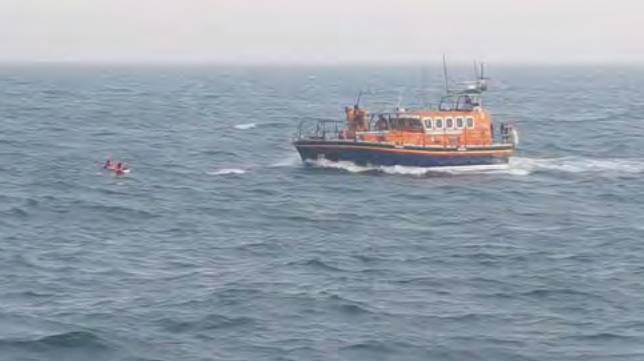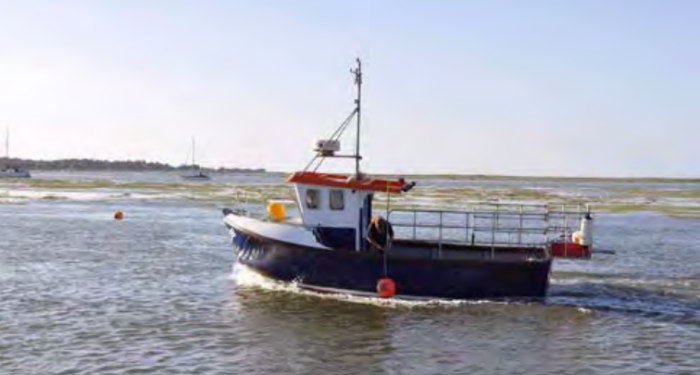UK MAIB, in the latest Safety Digest, addresses a situation where a potter was returning to harbour, when the sea conditions became rough. Eventually, the vessel sank and the crew fell in the sea waiting for Coast Guard’s rescue.
The Incident
A 7.2m potter with a skipper and crewman on board was returning to harbour after a day’s fishing for whelks. The sea conditions were slight, but it became increasingly rough as the boat approached a bar, which although was a common phenomenon.
As the vessel passed the bar, the crew felt an unexpected roll to starboard; the boat then righted itself before rolling heavily again. The skipper, who heard the bilge alarm and was concerned about capsize, grabbed two lifejackets from the wheelhouse and these were donned by both crew as the boat rolled over.
Following, the boat settled on its side and both crew managed to scramble onto the side of the wheelhouse. Therefore, the skipper called 999 via his mobile phone to contact the coast guard. Although he didn’t provide his detailed position, the information was sufficient for the Coast Guard to proceed to the search and rescue mission. The fishing boat sank prior to the arrival of the lifeboat, leaving both men in the water clinging to a lifebuoy.

Lessons Learned
According to the UK MAIB:
- Be prepared for every eventuality, including flooding, which presents an immediate risk to any vessel; systems and procedures should be in place to minimize the risk of loss. The source of flooding in this accident was never found; however, it was sufficiently rapid to cause the boat to become unstable and capsize before the crew could react. Although the bilge alarm was heard before the boat capsized, it did not provide sufficient warning and the boat’s bilge pump did not cope. Consideration should be given to the location of bilge alarm switches and to the capacity and operating modes of pumps.
- Wearing a lifejacket is critical to survival when unexpectedly immersed in cold water. Neither of the boat’s crew routinely wore lifejackets when working on deck. It was extremely fortunate that they were able to don lifejackets as the boat got into difficulty and they found themselves in the sea. Both crew were extremely cold when rescued, and their survival probably depended on the lifejackets and lifebuoy. An even better option would have been to carry a liferaft, which could have provided them with shelter until help arrived.
- Being able to raise the alarm is vital for rescue to follow. The skipper was able to report the emergency using his mobile phone and provide sufficient information for a successful rescue. However, had his phone not worked, there would not have been any method of raising the alarm because the boat’s electrical systems cut out when the flooding happened, thus preventing the use of the VHF radio. Furthermore, it was not fitted with an EPIRB and the crew carried no personal locator beacons.
- The carriage of an EPIRB is a simple and effective way to raise the alarm in an emergency of this nature and will become mandatory with the introduction of The Code of Practice for the Safety of Small Fishing Vessels of less than 15m Length Overall. But why wait?






























































